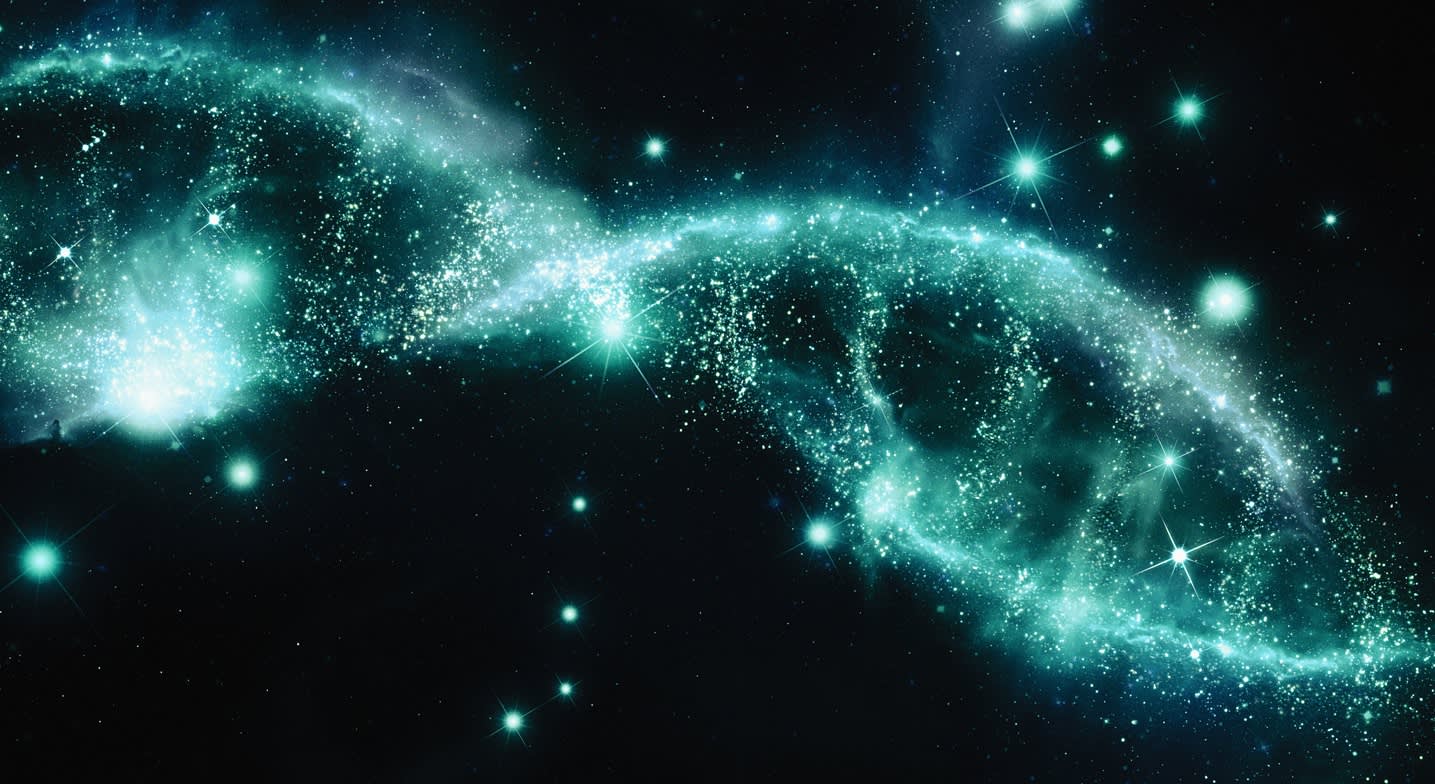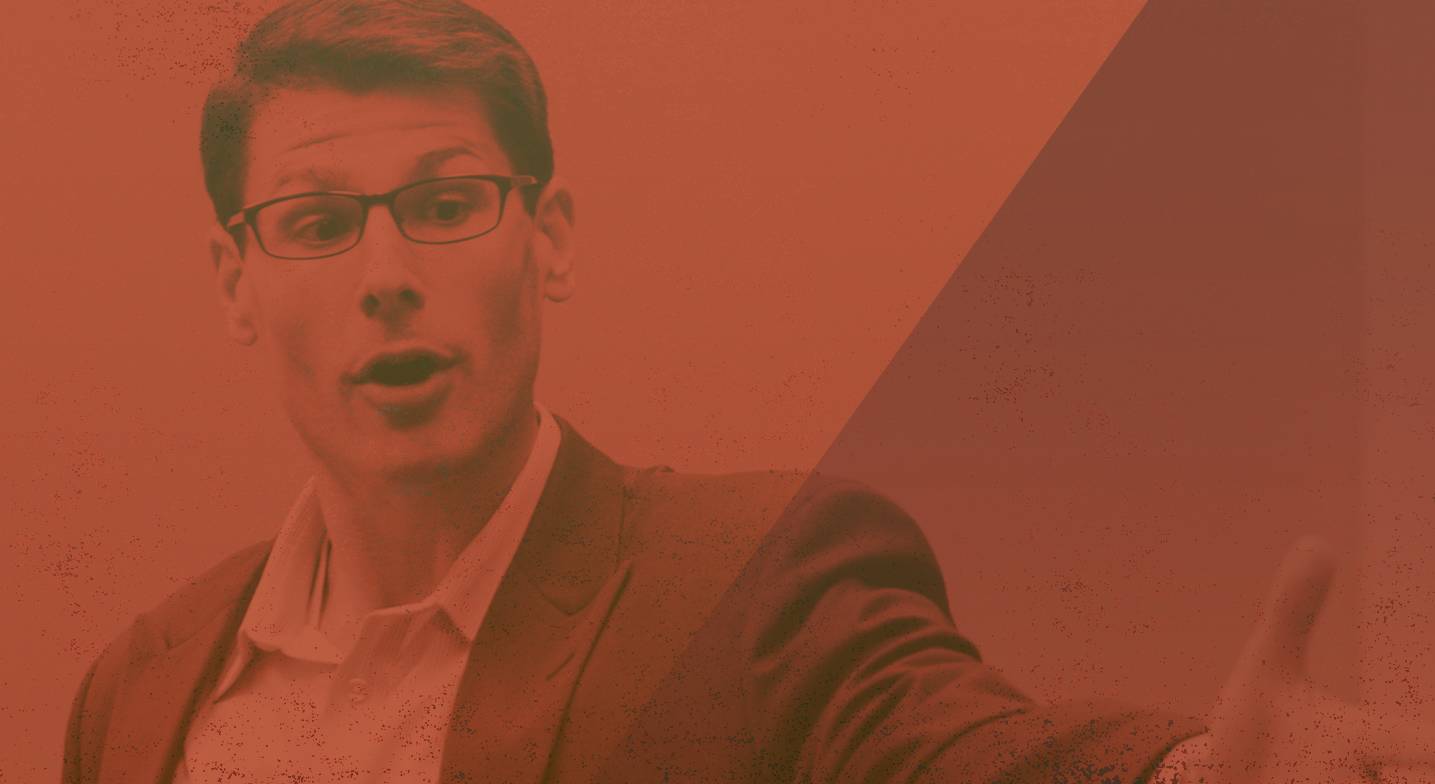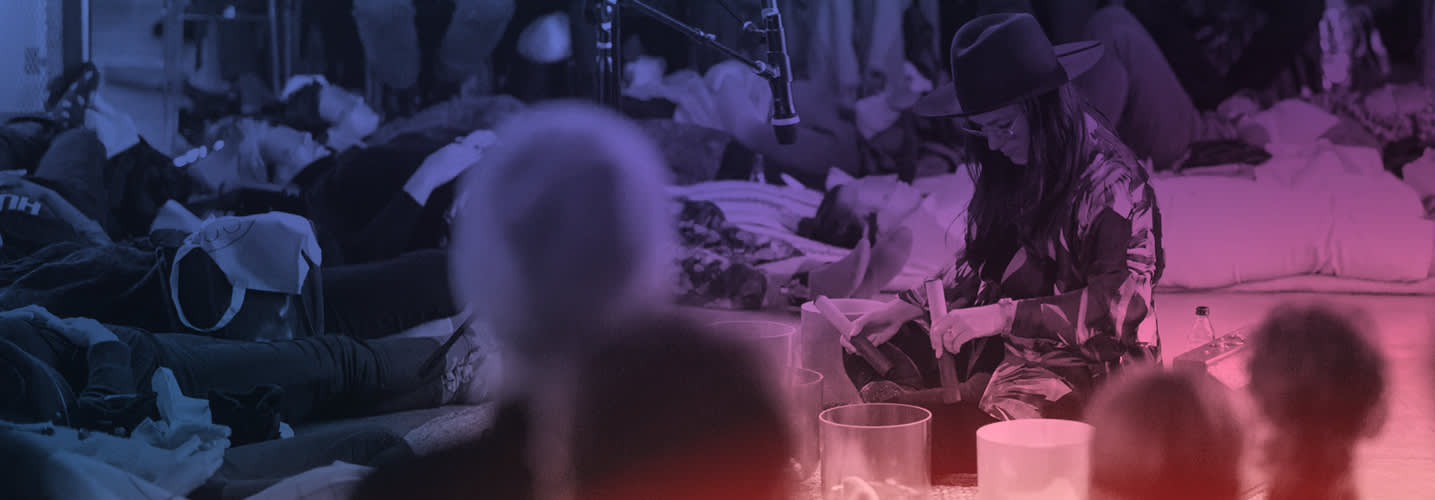Note: Text has been edited for clarity and will not match audio exactly.
Today we are delighted to speak with author and audiobook narrator Sean Carroll. In addition to being a cosmologist and physics professor at the California Institute of Technology, Mr. Carroll has contributed to several scientific journals and appeared on major TV shows including The Colbert Reportand Through the Wormhole with Morgan Freeman.
His fourth and most recent book is called The Big Picture: On the Origins of Life, Meaning, and the Universe Itself.
Audible: Sean Carroll, welcome and thank you so much for speaking with me today.
Sean Carroll: Thank you very much.
A: Why did you decide to write The Big Picture?
SC: Well, I’d been thinking about issues like this for a long time, you know. Not only what I do for a living — which is physics, cosmology, the underlying laws of nature — but how these laws relate to our everyday human lives. I do think that we human beings are part of the wider universe and even though physicists talk about the world in very different terms than we do in our everyday lives, they have to be connected somehow and the connections are through a long chain of reasoning that goes up from physics through chemistry and biology and complexity up to human values.
So I can’t answer all the questions that are raised in the book, but I thought it would be at least useful to put them all in one place.
A: You did study both physics and philosophy in school, is that correct?
SC: I studied physics and I got a minor in philosophy, yes.
A: Has this book been a long time coming for you?
SC: Yeah, in some sense, it’s sort of a culmination of things I’d been thinking about for most of my whole life.
A: Is this book written for the layperson? I got the feeling it was when I read it.
SC: This book is 100% written for the layperson. There’s a lot of ideas in there. Some of it can be pretty challenging, but it’s divided up into little tiny chapters. Each individual chapter might give you a heavy idea, but you can read it and absorb it at your leisure.
A: Definitely, that helps. How would you assess the general public’s interest and understanding of science right now?
SC: I think that people are, overall, extremely interested in science. I think that we scientists don’t always do a good job of making it accessible and relatable, but I think that when we do a good job, the public is right there. They want to know more. If we do our job in translating the science-speak that we talk amongst ourselves to a language that an ordinary person can grasp, then I think that everyone should be following along in the big discoveries and great ideas of modern science.
“Why does the universe exist at all? Maybe there isn’t any reason why. Maybe it just is.”
A: Do you feel like you’re accomplishing that goal by writing books like this?
SC: I think every little bit helps. I’m a big believer that we should have a rich ecosystem of science communication so there should be books and documentaries on TV and so forth, but also there should be journal articles and blogs and people on Twitter and demonstrations and lectures, and there’s many, many different ways that we can communicate science to the broadest possible audience.
A: Absolutely. Let’s get into the work. Throughout The Big Picture, you employ an ontology you refer to as “poetic naturalism.” Talk to me about what that term means.
SC: “Naturalism” is a very basic, old idea that what exists is one world, the natural world. There’s no separate realms out there other than the natural world, the world that we experience and learn about through observing it and empirical investigation. “Poetic” emphasizes that there are many different ways of talking about that world and that if these ways are accurate and helpful, then they count as real. So even if there’s one way of talking about the world as if it’s made of particles, electrons, and photons, and so forth, that doesn’t mean that things that are emergent out of that description, like tables and chairs, aren’t equally real. Then of course if that’s true, there are things like human values that can be equally real as well.
A: One of the approaches that you used throughout the book to approach this different ways of talking about things is called “Bayesian Reasoning.” What are the basics of Bayesian Reasoning and why do you find it a useful method?
SC: Bayesian Reasoning sounds a little intimidating and technical, but it’s really just a slightly more precise way of taking into account the fact that when we learn new things, we change what we believe is true about the universe. There are many questions we don’t know the answer to, like back a hundred years ago, we didn’t know whether our galaxy, the Milky Way, was the entire universe or not. So you might say, “Well, I had a 90% chance of thinking that the Milky Way is the entire universe, and I think that there’s a 10% chance that it’s not.” Then you collect new data. Edwin Hubble goes out there and measures the distances to different galaxies, and he realizes the universe is much bigger than just our galaxy. You’d say, “Oh, okay, so I update my beliefs. Now I think there’s a 99% chance that the universe is way bigger than just our galaxy.” That’s all Bayesian Reasoning really is.
A: Throughout the book you take the road of a good Bayesian by confronting theism as a serious argument. Why is it important to you to address the arguments of theism?
SC: I think, even as a scientist, that there’s this idea out there among certain crowds that science and religion are sort of separate things. [That] they really don’t have anything to do with each other. In some aspects, that’s true. There’s a lot to religion that has nothing to do with scientific practice. But there is also overlap. There are questions about the fundamental nature of reality that religion tries to provide answers to, and science does also.
So I want to take all the hypotheses seriously. This is part of being a good Bayesian. You don’t decide ahead of time what the truth is; you say, “Well, there’s a certain percentage chance of this, a certain percentage chance of that.” And that includes questions like the existence of God. So I think that you should put that out there on the table as something to take seriously, and then see where the evidence leads you.
A: There’s a common phrase, “everything happens for a reason,” that captures how many of us think about cause and effect. Why is this line of thinking not quite right?
SC: It is a common phrase, “everything happens for a reason.” It’s not only something you can buy on bumper stickers, but it has philosophical credibility. Back in the days, people like Gottfried Wilhelm Leibniz would say things like that, and they were doing their best to understand how the world really works at a fundamental level. These days we know a little bit better.
The fundamental way the world works at its deepest level — the level of particles and fields and quantum mechanics — this vocabulary of causes and reasons why just doesn’t apply. There’s a different way the world works. It works according to patterns: If this thing happens then something else happened just before, something else will happen just after. But no one of those things is the cause or the reason for anything else, it’s just a smooth pattern throughout the universe.
“There’s nothing special about the future state of the universe. It was the past that was special.”
So this shift in perspective — which is very natural as we learn more about the world, we change our way of thinking about it — it changes the kinds of questions we ask, like “Why does the universe exist at all?” Well, maybe there isn’t any reason why. Maybe it just is.

A: In that same vein, you say in your book that it’s been popular to imagine that the world is teleological, or directed toward some future goal. But that’s not really a good way to look at things if we want to understand the big picture, right?
SC: Yeah, that’s right. It was for a long time. And again, for very sensible reasons, you saw that over the course of time things evolved. For example, species came into existence that were increasingly complex and varied, and our brain power grew over time. So it’s natural to think, “Well, maybe this is all for some future goal that we’re directed to.” But again, our best understanding of the world says that’s not true. That, if anything, there’s nothing special about the future state of the universe. It will be completely generic and uninteresting. It was the past that was special. We began the universe near the Big Bang in a very organized, what we call a “low-entropy” configuration where things were very precisely arranged, and the universe has just been winding down ever since then. Even complicated things like you and me are just sort of the side effects of this overall winding down that the universe is going through.
A: I think that’s a very good point, because a lot of us think about life or you and me as a “thing” or as a “substance,” but what’s a more accurate way to describe life?
SC: Well, if you’re a naturalist, then you think that the world that we discover through science — the world of atoms and molecules of which we’re made — is everything. If that’s true, then you think that a person or an organism, whether it’s a tree or a planet or whatever, these are collections of atoms obeying the laws of physics. And when we talk about life, we don’t mean that there’s something extra added to those collections of atoms. What we mean is that those collections of atoms are doing something — there’s a “process” of a substance. And what that implies, like it or not, is that life can end. Just like you can put out a flame, the chemical processes that make something go and make it a living being can eventually come to an end and then that’s all that there is for that living being.
A: You quote the philosopher Thomas Nagel to sum up the difficulty that many of us have with conceptualizing consciousness: “The existence of consciousness seems to imply that the natural order is far less austere than it would be if physics and chemistry accounted for everything.” So how should we think about consciousness?
SC: Consciousness is definitely one of the most subtle and hard to understand features of the world that we know about, and we don’t know what the final answers are. But there’s overwhelming evidence that the world is the stuff of nature obeying the laws of physics. And the question is: Can you reconcile the fact that even our brains are made of the same atoms and forces as everything else with the existence of consciousness? I think there’s no problem at all reconciling those two things. It might be very difficult to actually do it, but we’re making enormous progress in neuroscience and in philosophy as well. I think when we finally do understand consciousness, it’ll be a process, just like life. It’ll be something that our atoms and forces do inside our brains and our bodies.
A: For a lot of people, the emergence of complex life seems unlikely to have occurred spontaneously or without some kind of designer. How do you respond to that?
SC: I think it’s interesting to see that if we trace what naturally happens in the universe — if you start from a universe with very simple, low-entropy initial conditions like we think our universe has — it is quite natural for complex structures to come into being at least temporarily. We don’t know exactly how life began, but we have very theories of it. We have pictures of how it might’ve happened — I don’t even want to go into the details, but there’s “metabolism first” theories, “replication first” theories, there’s the spontaneous existence of cell walls that has already been observed in the laboratory.
So there’s every reason to believe that when we do finally figure it out, the origin of life will be just as much of a science problem as any other physics or cosmology problem that we know about.
A: When we look a little bit deeper into how some organisms came to be, the design isn’t always so intelligent, right?
SC: Well, that’s also very true, yes. I think that there’s very, very little reason to think that there is guidance in any of the evolution of life forms including human beings. This is more or less exactly what you would expect by sort of the messy, chaotic processes where individual life forms are more likely to survive if they’re better adapted to their environment.
A: How was the experience of narrating the audiobook?
SC: It was very interesting. It was fun. It’s a lot of work. It’s a lot of hours there, especially because I had a very long book. But they’re my words, you know, I wrote them, and I feel possessive of them, so ultimately I was very happy that I got to be the one to actually read the words. I tried to give some excitement and some feeling of what was happening in the narrative as I was reading the book.
I think that it’s an exciting universe that we live in. Not all the answers are given to us, not all the answers are things we immediately know.
A: Well, I think that definitely came across. Is there an ultimate takeaway that you want your readers and listeners to leave with?
SC: I think that it’s an exciting universe that we live in. There’s a lot of possibilities. Not all the answers are given to us, not all the answers are things we immediately know. But it’s very, very impressive that we have such a good overall framework within which we can address these issues of what we are as human beings, where we want to go, how we should treat each other. It’s a very liberating, creative, exhilarating view of how the big picture fits together.







